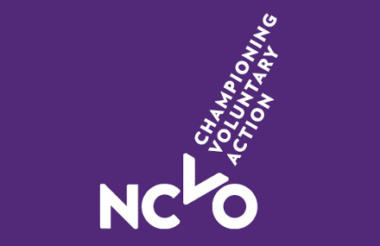NCVO is closing its Funding Central service and ending its quality assurance programme, as part of its new strategy.
Funding Central will close on 31 March, although NCVO is directing charities to other similar services. The Trusted Charity programme will be wound down over the course of this year and finish in March 2022.
The membership body is also considering options for how to evolve its Civil Society Almanac research.
Like many charities, NCVO’s income has been hit by the pandemic and is projecting a £1.3m deficit in each of the next three years.
Its chief executive, Karl Wilding, and two other senior leaders are leaving this year. Overall, the number of staff has reduced from 105 to 87.
Sarah Vibert, interim chief executive, said: “The hardest thing for any charity developing a new strategy is deciding what you have to stop and this has been amplified by the financial situation we find ourselves in through the Covid-19 pandemic. But by doing this we can focus on where NCVO can make the biggest impact.
“I am extremely confident and excited about the focus of direction we have been able to create. This will be built on collaboration with partners across the sector and directed by our members, who will be given a central role in our work.”
Four strands to the new strategy
Vibert told Civil Society News that now the restructure has been completed and the strategy finalised, the “staff team are raring to go to deliver it”.
She characterised the strategy as an “evolution, not revolution” and said changes were “more around how we do things than what we do”.
Support
During 2020, NCVO’s online support resources had nearly two million views. The strategy says it will “bring members together to identify and find solutions to common problems”.
“This insight will ensure the support offer of the future is responsive to the needs of the day and provide evidence for NCVO to push for a better environment for charities,” it adds.
NCVO says it will redesign its Charities Evaluation Services consultancy so that it is integrated with NCVO's wider consultancy offer.
It will continue to be a member of the UK Volunteering Forum (UKVF) and promote their Investing in Volunteers (IiV) quality standard and provide the IiV essentials tool. But partners in Scotland, Wales and Northern Ireland will support organisations in England through the IiV journey.
Mobilise
NCVO said it is “committed to influencing the national conversation” and will be “guided by our members’ needs and experiences”.
Vibert said it was important to “push for the best possible environment”.
Connect
NCVO emphasised its desire to work collaboratively.
Its strategy says: “With fewer resources available, NCVO will be more adaptable, more efficient and work with others to make a stronger sector. This includes maintaining and developing existing local infrastructure networks and volunteer centres ensuring that NCVO understands and supports local needs.”
Evolve
Finally, NCVO has set out aims to work in new ways and “push forward an ongoing cultural shift seeing the organisation work in an open, collaborative, inclusive and ambitious way”.
NCVO said it would be more open about its own success and failure, enable more flexible working arrangements and prioritise digital delivery.
Last year NCVO set up a diversity subcommittee of its board.
Dr Priya Singh, chair, said: “For me as chair being more member-centred is synonymous with being more inclusive. NCVO has work to do to ensure we build a culture which is ever-more inclusive, and our new strategy highlights our commitment to this.
“We also need to acknowledge and use our pivotal role in the sector and in this context, we recognise the importance of working alongside and amplifying the messages of partners who are doing great work to build a more equitable sector reflective of the communities we serve.”
12,000 free users of Funding Central
Funding Central was a resource which let organisations search for information about grants, social investment and other funding opportunities.
It is free for organisations with an income of under £100,000, while larger organisations paid £120 plus VAT for an annual subscription.
The platform has 12,000 free users, 900 organisation subscriptions and 200 individual subscribers. Those who have lapsed subscriptions can continue to access the service until it closes for £20.
NCVO is redirecting users to alternative services, including one from Idox which is offering free access for charities with incomes under £30,000. It estimates that about half the current free users will be able to take this up.
Trusted Charity
There are currently 500 subscribers to Trusted Charity Online, NCVO’s self-assessment tool that helps charities understand what they do and where they can improve.
Charities that complete the online assessment can move on to an external assessment and accreditation to be awarded the Trusted Charity Mark.
It was originally called PQAASSO (Practical Quality Assurance System for Small Organisations) until last year when it was renamed.
There are currently 500 Trusted Charity Online subscribers. 162 organisations have achieved the mark and 60 are working towards it.
Once it has been awarded the mark is valid for three years.
The cost of self-assessment and external accreditation was linked to the number of full-time employees.
Self-assessment cost between £50 and £250, while the external accreditation cost between £2,000 and £11,000.
Future of the Civil Society Almanac
The Civil Society Almanac was first published in 1996 and provides a snapshot of what charities do, by tracking things like income and spending, workforce and volunteering.
Vibert said that the future of the Almanac would be “is such an important part of our research programme”.
“What we will be looking to do, as we continually evolve and learn, is look at how that publication needs to evolve and change.”
“The data in the Almanac is always quite out of date,”
She said this year had brought into “sharp focus” the fact that by the time the data has been made available and analysed it is often out of date.
“We are looking at how do charities need to access that data, how is it useful, is it helpful to do an annual publication? Should we do it less often but in more depth?”
“So, we will be evolving that publication but it certainly won’t be going anywhere,” she said.
Editor's note
This story has corrected to state that the annual subscription for Funding Central was £120 and add that the £20 fee is for those whose subscriptions have lapsed, but want to access it until it closes.
Related articles











